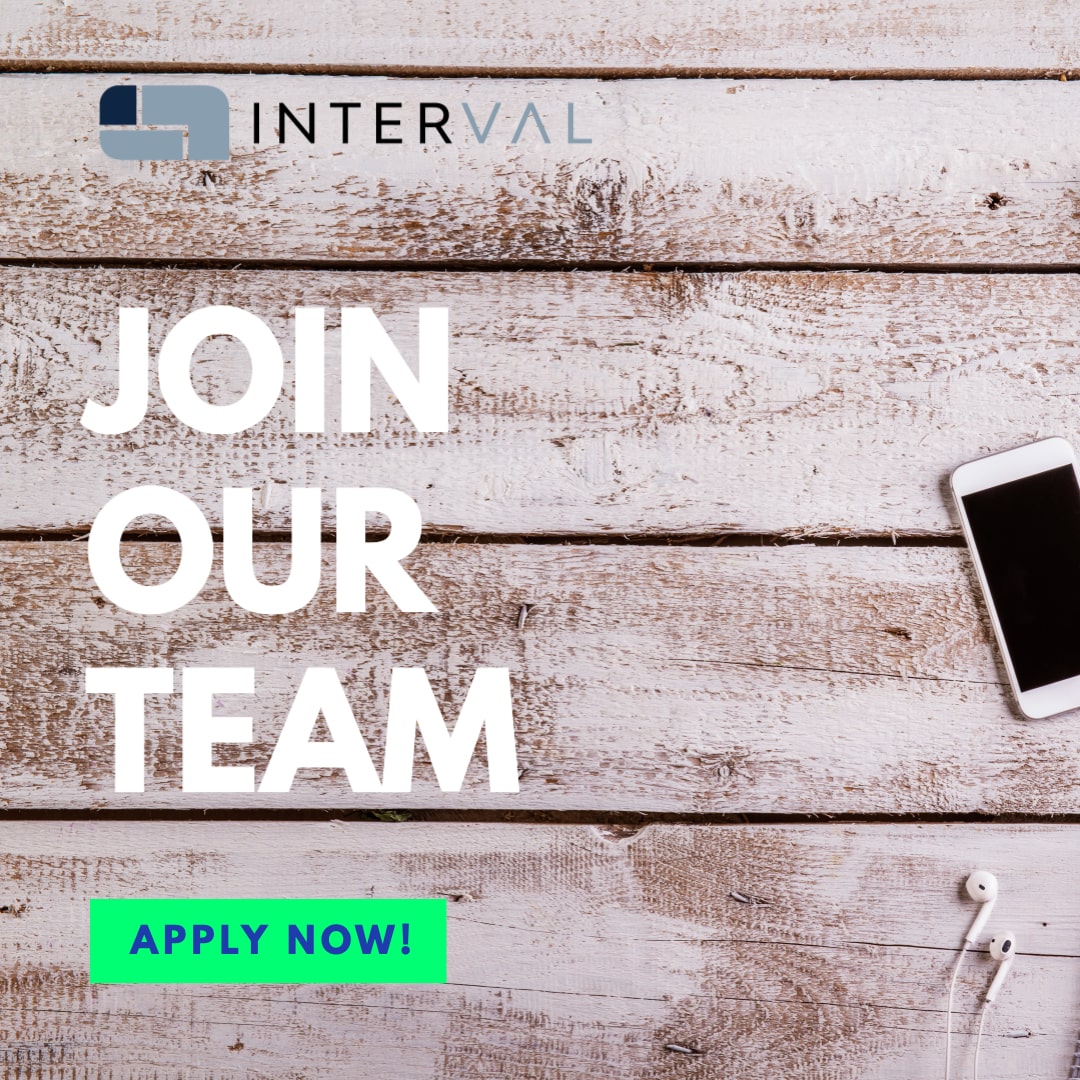Ever wondered what happens when you take control of your career and create a schedule that works for you? Welcome to the world of interval careers! If you're tired of the 9-to-5 grind and crave more flexibility, this might just be the solution you've been looking for. Interval careers are all about breaking free from traditional work patterns and embracing a more balanced approach to life and work.
Imagine being able to pause your career for a short period, recharge your batteries, and return with renewed energy. That's exactly what interval careers are all about. This concept has gained traction in recent years as more people realize the importance of mental and emotional well-being in their professional lives. It's not just about taking breaks; it's about creating a sustainable career path that aligns with your personal goals.
So, why should you care about interval careers? Because they offer a fresh perspective on how we approach work. Instead of burning out or feeling trapped in a monotonous routine, interval careers allow you to step back, reassess your priorities, and come back stronger. In this article, we'll dive deep into what interval careers are, how they work, and why they might be the perfect fit for you.
Read also:Wouter De Backer Wife The Untold Story You Need To Know
What Are Interval Careers?
Let's break it down. Interval careers are essentially structured breaks in your professional journey. Think of them as planned pauses where you step away from your job to focus on personal growth, family, travel, or even just relaxation. These intervals can last anywhere from a few weeks to a couple of years, depending on your needs and circumstances.
For example, imagine you've been working nonstop for five years. You're feeling drained and disconnected from your passions. Instead of quitting altogether, you decide to take a six-month interval to travel, learn a new skill, or simply spend quality time with loved ones. When you return, you bring back fresh ideas, renewed motivation, and a clearer sense of purpose.
Here are some key benefits of interval careers:
- Reduces burnout and improves mental health
- Enhances creativity and problem-solving skills
- Allows for personal development and exploration
- Strengthens relationships with family and friends
- Increases overall job satisfaction and productivity
Why Are Interval Careers Gaining Popularity?
Let's face it, the traditional career path doesn't work for everyone. In today's fast-paced world, people are realizing that a one-size-fits-all approach to work isn't sustainable. More and more professionals are seeking ways to balance their professional and personal lives without sacrificing either. This is where interval careers come in.
According to a survey by Gallup, nearly 50% of employees experience burnout at some point in their careers. This statistic is alarming, but it also highlights the growing need for flexible work arrangements. Interval careers offer a practical solution by allowing individuals to recharge without completely abandoning their careers.
Companies are also starting to recognize the value of interval careers. Many organizations now offer sabbatical programs or flexible leave policies to support their employees' well-being. It's a win-win situation: employees feel more valued and motivated, while employers benefit from increased productivity and loyalty.
Read also:Sophie Rain Erome A Rising Star In The Spotlight
How Do Interval Careers Work?
Implementing an interval career isn't as complicated as it sounds. It starts with planning and communication. Here's a step-by-step guide to help you get started:
- Assess your current situation and identify areas where you need a break.
- Set clear goals for your interval. Are you looking to travel, learn something new, or focus on family?
- Discuss your plans with your employer. Be open and honest about your intentions and how it will benefit both you and the company.
- Create a timeline for your interval. Decide how long you want to take off and when you plan to return.
- Develop a transition plan to ensure a smooth handover of responsibilities while you're away.
Remember, communication is key. The more transparent you are with your employer, the more likely they are to support your decision. Many companies appreciate employees who take initiative to improve their well-being, as it often leads to better performance in the long run.
The Benefits of Interval Careers
Now that we've covered the basics, let's talk about the benefits. Interval careers offer a wide range of advantages for both individuals and organizations. Here are some of the most significant ones:
For Employees
Interval careers empower employees to take control of their lives and careers. They provide an opportunity to step back, reflect, and recharge. This can lead to improved mental health, increased job satisfaction, and a stronger sense of purpose. Additionally, taking planned breaks can enhance creativity and problem-solving skills, making employees more effective when they return to work.
For Employers
From an employer's perspective, supporting interval careers can boost employee morale and loyalty. When workers feel valued and supported, they are more likely to stay with the company long-term. Moreover, employees who return from intervals often bring back fresh perspectives and innovative ideas, which can drive business growth and success.
Challenges of Interval Careers
Of course, nothing is perfect, and interval careers do come with their own set of challenges. One of the biggest hurdles is financial stability. Taking time off means losing income, which can be a significant concern for many people. However, with proper planning and budgeting, this challenge can be overcome.
Another potential issue is the fear of falling behind in your career. Some professionals worry that taking a break will make it harder to catch up when they return. To address this concern, it's important to stay connected with industry trends and continue learning during your interval. Online courses, networking events, and professional development opportunities can help you stay relevant in your field.
Tips for Overcoming Challenges
Here are a few tips to help you navigate the challenges of interval careers:
- Save up a financial cushion before taking your interval to ensure financial stability.
- Stay connected with your professional network to maintain industry relevance.
- Use your interval to develop new skills or pursue side projects that align with your career goals.
- Communicate openly with your employer about your plans and how they can support you.
How to Implement Interval Careers in Your Life
Ready to give interval careers a try? Here's how you can implement them in your life:
Start by identifying your goals and priorities. What do you hope to achieve during your interval? Is it personal growth, family time, or professional development? Once you have a clear vision, start planning. Set a timeline, create a budget, and communicate your plans with your employer.
It's also important to stay flexible. Life is unpredictable, and things don't always go according to plan. Be prepared to adapt and adjust as needed. Remember, the goal is to create a sustainable career path that works for you, not to follow a rigid schedule.
Case Studies: Real-Life Examples of Interval Careers
Let's look at a couple of real-life examples to see how interval careers can work in practice:
Case 1: Sarah's Sabbatical
Sarah was a marketing manager who had been working tirelessly for over a decade. She felt burned out and disconnected from her passions. After discussing with her employer, she decided to take a six-month sabbatical to travel and explore new hobbies. During her break, she discovered a love for photography and even started a side business selling her work. When she returned to her job, she brought back fresh ideas and a renewed sense of purpose.
Case 2: John's Career Pivot
John was an engineer who wanted to transition into a career in tech. He took a one-year interval to focus on learning coding skills and building his portfolio. During this time, he completed several online courses and worked on personal projects. By the end of his interval, he had landed a job at a top tech company, proving that intervals can be a powerful tool for career growth.
The Future of Interval Careers
As the world of work continues to evolve, interval careers are likely to become even more popular. With advancements in technology and shifting societal values, flexibility is becoming the norm rather than the exception. More companies are recognizing the importance of work-life balance and are adapting their policies to support it.
Moreover, the rise of remote work has made it easier for employees to take intervals without disrupting their careers. With the ability to work from anywhere, professionals can now take breaks without losing touch with their jobs. This flexibility opens up new possibilities for how we approach work and life.
What Does the Future Hold?
Looking ahead, we can expect to see more innovative approaches to work-life balance. Interval careers may become a standard part of professional development, with companies offering structured programs to support their employees' well-being. As more people embrace this concept, we may see a shift in how we define success in both our personal and professional lives.
Conclusion
In conclusion, interval careers offer a fresh and sustainable approach to work-life balance. By taking planned breaks, professionals can recharge, grow, and return to their careers with renewed energy and purpose. The benefits extend beyond the individual, as companies also stand to gain from increased productivity and loyalty.
So, are you ready to embrace the interval career lifestyle? If you're feeling stuck or burned out, this might just be the solution you've been searching for. Take the first step today by assessing your needs and planning your interval. Remember, the key to success is communication, flexibility, and a clear vision of your goals.
Don't forget to share your thoughts and experiences in the comments below. We'd love to hear how interval careers have impacted your life. And if you found this article helpful, be sure to check out our other resources on work-life balance and career development.
Table of Contents



